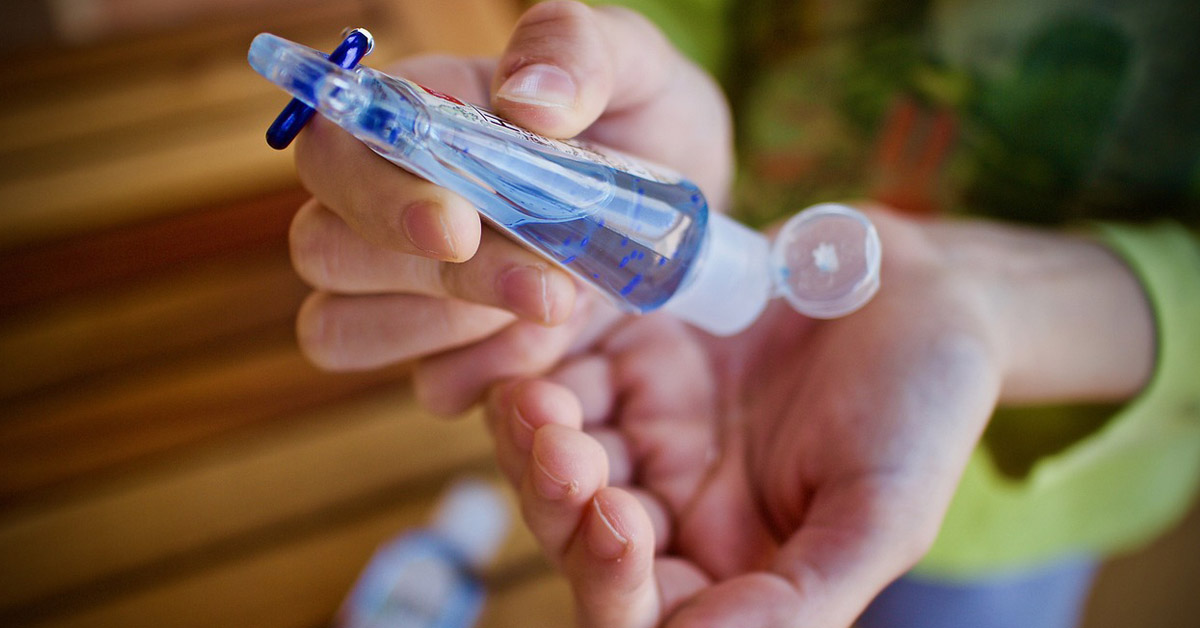
Hand Sanitizer Debate
We have been hearing it since childhood, “Keeping your hands clean is the easiest way to prevent germs and sickness.” It’s not just a statement from moms and kindergarten teachers everywhere, but a shared fact stated by the Centers for Disease Control and Prevention (CDC). Many diseases and conditions are spread by not washing our hands with soap and clean, running water.
According to the CDC, a thorough scrub-down with soap and water is the most effective method to cleanse our hands of germs like the norovirus, but what if we don’t have access to a sink?
The Good and Bad of Hand Sanitizers
According to Michael Behuler, MD, medical director of NC Poison Control, the state’s poison control center, hand sanitizers containing ethanol or isopropanol are safe as long as you are using known brands. The most common reports of hand sanitizer issues were for those that contained methanol, a specific type of alcohol that can have side effects such as vomiting, nausea, and headaches.
During the pandemic in 2020, there were a large number of alcohol-based hand sanitizers which contained methanol. In a case study reported in the journal, Clinical Toxicology, the Arizona Poison and Drug Information Center saw an increase of 124% of poison exposures to hand sanitizer. Of these cases, 28% involved methanol-contaminated hand sanitizer.1 Five of these patients died from methanol poisoning. Exposure to these products failed to meet regulatory standards, which led to increased harm and even death.
Which Is Better – Soap and Water or Hand Sanitizer?
The Centers for Disease Control and Prevention (CDC) claim handwashing with soap and water is the most effective way to prevent the spread of diseases such as COVID_19 and the flu. Public health systems across the globe recommend thorough handwashing with soap and water as a first defense against germs and viruses. People who spend enough time lathering and scrubbing allow the soap to break down viruses and germs. Handwashing with soap dislodges dead microbes and viral cells from the hands and washes them down the drain.
Hand sanitizer does, however, play an important role in preventing virus transmission when washing with soap and water is unavailable or inconvenient to access. Hand sanitizers are an accessible method for sanitizing hands in public spaces such as supermarkets, gas stations, and public restrooms. While hand sanitizers don’t fit the bill for removing greasy substances, they can be effective in killing many germs as long as the sanitizer contains at least 60% alcohol.
Does Hand Sanitizer Expire?
Yes, hand sanitizer does expire. Hand sanitizers contain active ingredients such as ethyl or isopropyl alcohol, which can evaporate over time. Generally, a hand sanitizer’s expiration date is 3-5 years after the products’ manufacture date. The product is best if used by that date. Expired hand sanitizers are less effective.
Conclusion
Soap and water is the most effective in preventing viruses compared to hand sanitizers. However, in a pinch, when soap and water is inaccessible, reach for the hand sanitizer.
References
- Holzman SD, Larsen J, Kaur R, Smelski G, Dudley S, Shirazi FM. Death by hand sanitizer: syndemic methanol poisoning in the age of COVID-19. Clin Toxicol (Phila) [Internet]. 2021 [cited 2023 Jun 5];59(11):1009–14. Available from: https://pubmed.ncbi.nlm.nih.gov/33755514/
- Grayson ML, Melvani S, Druce J, Barr IG, Ballard SA, Johnson PD, Mastorakos T, Birch C. Efficacy of soap and water and alcohol-based hand-rub preparations against live H1N1 influenza virus on the hands of human volunteers. Clin Infect Dis. Feb;48(3):285-91.
- Oughton MT, Loo VG, Dendukuri N, Fenn S, Libman MD. Hand hygiene with soap and water is superior to alcohol rub and antiseptic wipes for removal of Clostridium difficile. Infect Control Hosp Epidemiol. Oct;30(10):939-44.






